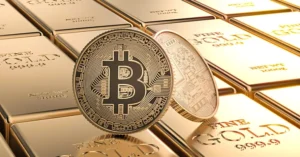
Debates on Bitcoin reserves have divided the market. Some view it as vital protection against dollar fluctuations, while others are cautious about its risks. This divide is so pronounced that even the Federal Reserve and the Trump administration have differing views. Japan has now entered this discussion, examining the potential opportunities and risks related to Bitcoin reserves. Amidst this, it’s noteworthy that the Japanese Yen has reached its lowest level against the dollar in five months, joining the group of G20 currencies struggling against the dominance of the dollar. As a result, Japan’s economy is expected to face significant challenges by 2025. Recent interest rate cuts by the Federal Reserve led to a record two-year high for the US dollar index at 108.54, causing Bitcoin to plummet by 14% in just three days. Japan also felt the pressure, with its yen hitting its lowest level in five months at 158 yen to a dollar. In this scenario, the strengthening of the dollar could increase inflation pressures in Japan, further complicating the country’s economic situation. Japan’s inflation rate reached 2.9% in November 2024, the highest since October 2023. In this context, Bitcoin reserves could be a suitable solution to combat inflation. Bitcoin’s limited supply makes it a strong hedge against inflation, but its price volatility can also turn it into a significant risk. However, Japan’s economic pressures could lead to the acceptance of Bitcoin reserves in the country. Major exchanges are also accumulating Bitcoin, indicating that more countries may seek alternative options to the dollar. In such circumstances, Bitcoin can be a solution, but only if its price stabilizes in the coming year. On the real-time digital currency price page, you can view the live prices of all tokens and cryptocurrencies.





